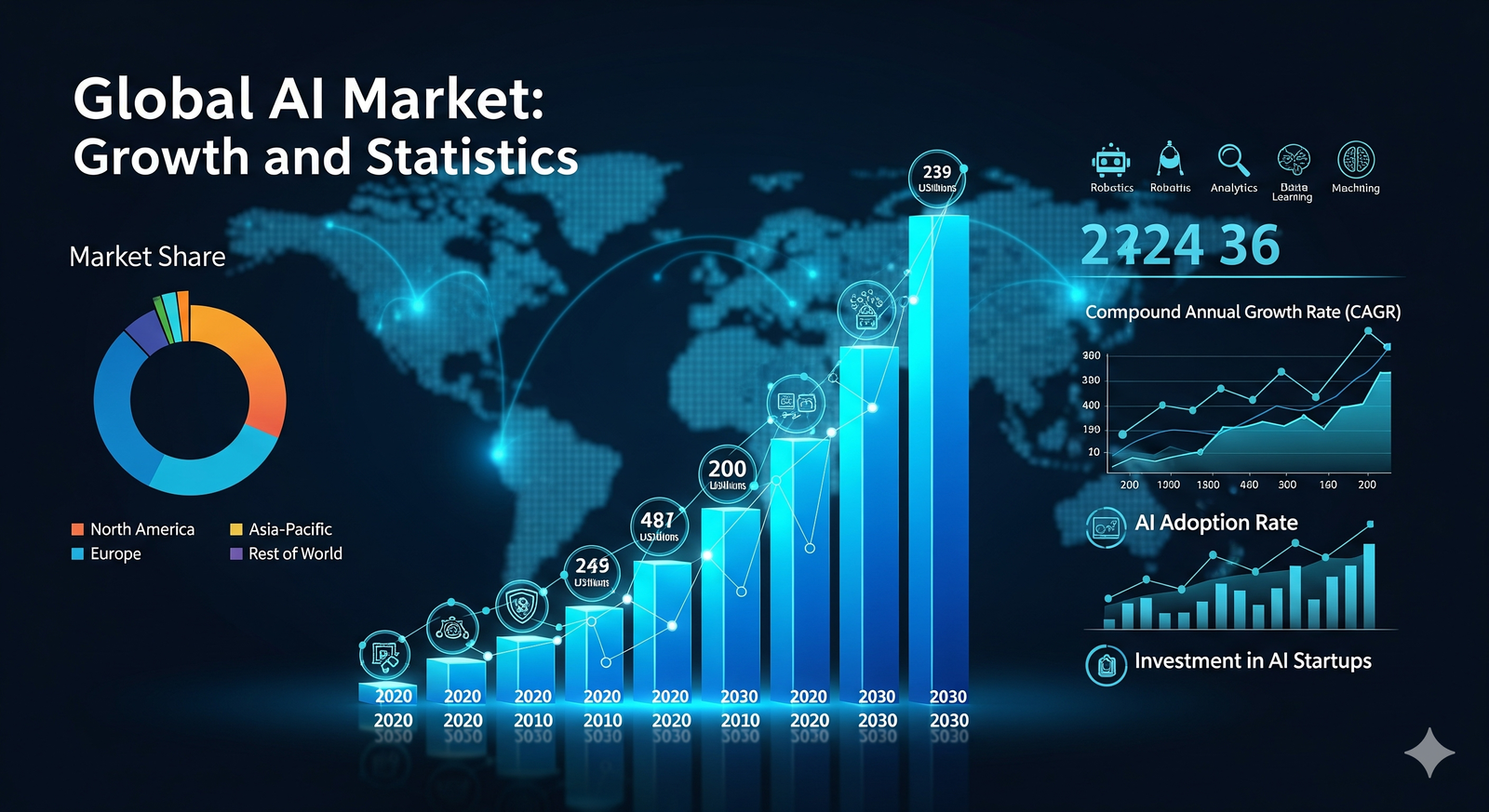Artificial Intelligence (AI) has evolved from a futuristic vision toward innovation in business. As of 2025, AI has embraced radical transformation from a limited experimental pilot or niche marketplace to industries of all shapes and sizes.
From predictive analytics to generative AI to machine-learning-powered automation, businesses today across the globe are leveraging AI to lower costs, increase efficiencies, and create entirely new revenue streams.
Organisations that are embracing AI are increasingly seeing measurable outcomes, including faster decision-making, personalised customer engagement, and solid returns on their investments. The overall growth of the global AI marketplace is transforming technology, but it is also redefining how businesses operate, compete, and scale at the rapid pace of today’s economy.
The current state of AI: How businesses are preparing to capitalise on its benefits
Certain large firms are establishing the leading organisational changes that organisations are beginning to implement, real actions to realise future value from Gen AI. Organisations are doing things impacting their bottom line, including evolving processes as they start to use gen AI and assigning senior leaders to important roles such as managing AI governance, based on the most recent findings from McKinsey Global Survey on AI.
The data also show that organisations are both hiring people for new AI positions and retraining employees to help with AI deployments, in search of reducing the widening number of gen-AI-related risks. Also, larger companies ($500 million in sales per year) are evolving faster than smaller companies.
10 Global AI Market Growth Statistics Every Business Leader Should Know in 2025
1. By 2027, the global AI market is expected to balloon to $407 billion
According to MarketsandMarkets, the AI market will grow from $150 billion in 2023 to over $407 billion by 2027, at a CAGR of 36.2%. Clearly, the implications of AI on digital transformation are bigger than you think.
2. 80% of businesses are investing in AI strategies
According to a PwC survey, 4 in 5 companies have already adopted AI or are planning their AI plans. AI has become a boardroom-level strategy, and not just a “technology experiment”.
3. AI could add $15.7 trillion to the global economy by 2030
According to PwC’s Global Artificial Intelligence Study, $6.6 trillion is earned from productivity gains, and $9.1 trillion comes from consumption-side effects (such as personalisation and new product innovation).
4. 64% of companies expect AI to enhance productivity
A McKinsey Global Survey found that almost two-thirds of executives believe that AI will enhance efficiency across their operations, sales, and customer engagement by at least 10%–20%.
5. 97 million new AI-related jobs will be created by 2025
The World Economic Forum (WEF) report suggests that AI adoption may destroy jobs; however, the balance of newly created roles will far outweigh jobs displaced, especially for positions such as data scientists, machine learning engineers, and AI specialists.
6. AI-led automation could reduce costs for an organization by 30%
According to Deloitte’s 2024 AI in Business Report, organisations that have embraced AI to automate functions in customer service, human resources, and finance have experienced significant reductions in costs without sacrificing quality.
7. 83% of AI-engaged companies report at least moderate to significant ROI
According to Gartner’s 2024 AI Trends Report, companies that chose to implement and adopt AI experienced an accelerated return on investment compared to other digital investments, with returns seen as soon as 12–18 months from implementation.
8. Generative AI will create $4.4 trillion per year for the global economy
A McKinsey report predicts that generative AI systems like ChatGPT, Bard, and industry generative AI systems will create trillions of new value by improving knowledge work and increasing innovation pathways.
9. By 2025, 75% of enterprise apps will include AI
IDC research states that three-quarters of all enterprise software will include AI functionality, and AI will become a feature of business technology.
10. 70% of consumers are receptive to AI-powered services
In a recent Statista report, consumer attitudes towards AI have become more trusting, especially in financial services, e-commerce, and healthcare. This shift provides businesses with the opportunity to utilise AI not only internally, but also in customer-facing applications.
Final Thoughts
AI is a key growth, efficiency, and competitiveness engine in today’s global marketplace. The data delivers trillions in economic value, millions of new jobs, and transformative productivity. If you do not adopt AI, you will very likely be left behind.
The global AI market continues to expand at above-average speeds, and every business leader should review statistics not as a number, but as a call to action. The future of business is intelligent, data-driven and powered by AI, and the time to invest is now.




